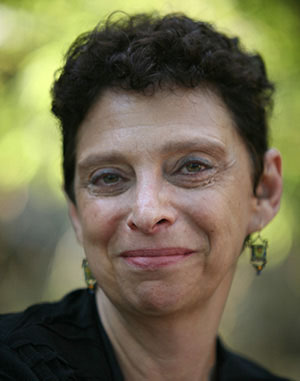1. Between a Rock and a Hard Place Sometimes clients ask me why they feel guilty about their anger toward cruel and abandoning parents. "I know it's OK to be mad at them," they'll say, "but I feel bad anyway; as if it's my fault somehow." Why do we have these conflicting emotions? And because a child cannot criticize his relationship with a parent, he will try to reconcile that relationship so that it makes sense to him. There is the one side of the parent who loves him - who tucks him in at night and buys him birthday presents and hugs him sometimes (the Rock). And then there is the toxic side of the parent - who screams at the child for being stupid or hits him or becomes too drunk to show up for Back to School Night (the Hard Place). If the child only chooses one side of the parent he believes to be true, he is lying to himself about the parent's other half. How can a child be loved and hated at the same time? The solution to being between a rock and hard place is to make both aspects of the relationship with the parent be true: my parent loves me despite the fact that I am not worthy of being loved. He hugs me even though I'm stupid. She still loves me even though I'm not important. As we mature, we can use our logic and cognitive reasoning to inform our emotions. We can remind ourselves that self-blame was forced upon us by emotionally damaged parents. As adults, we have the opportunity to nurture ourselves in ways our toxic parents never could - and leave the Rock and Hard Place far behind us at last.
2. The Vegas Effect "I know I shouldn't keep hooking up with guys who remind me of my abusive father, but I do. Why?" This is what I call the Las Vegas Effect. The reason Las Vegas is so popular - despite the fact that thousands of folks lose their money gambling there every hour of every day - is because there are always a few people who actually win. The slot machine cah-chings or the favored number on the roulette wheel lands right and the winner feels vindicated at last for enduring all those unsuccessful tries. Many of us would like to feel vindicated for all the betrayal or hurt we endured during our childhoods. If we choose a boyfriend as cold and distant as Dad was and make him into a warm and fuzzy husband, we'll have hit the emotional jackpot. If our loyalty to an addict makes her sober as our loyalty to our alcoholic Mom never did, we'll have won the relationship lottery. All that suffering and patience will have paid off at last. The problem with the Las Vegas Effect is that the odds are stacked against you. Did your parents ever change their hurtful behaviors due to your hopeful wishes for them? Does devotion to a cruel spouse make him a better person? If you want to double your wealth, you don't jeopardize it on the roll of the dice. If you want to double your psychological health, you don't jeopardize it on the whims of a toxic partner. We all deserve emotional investments in people who will mature and reward us for many years to come. This takes wise choices and hard work - and luck got nothin' to do with it.
3. When The BFF Becomes WTF "Just as we got to high school, my best friend totally changed. I don't even know her anymore." One of the most overlooked issues of adolescence is friends: how friendships change, evolve or disintegrate over time. It's helpful to remember that teens, like budding flowers in a garden, are still growing. Some adolescents spurt up and mature quicker than their counterparts, leaving their peers behind. Other sprouts, who should have grown, droop down and find themselves choked by the weeds of self destruction. All children begin as seeds of their own potential. But each and every living thing develops differently and at his or her own pace. The geek in middle school turns into the wrestling champion in high school. The shy girl in seventh grade will be known as the school tramp by junior year. Why? Perhaps one was encouraged and one was not; one experienced love while the other experienced trauma. Friendships, like gardens, have their seasons of evolution and stagnation. Those we are entwined with will loosen their ties with us and develop their own way. Others will burst into our lives and surprise us with a harvest of companionship we never expected. Some BFFs will become strangers to us. And some will stay with us as together we grow up and blossom and turn our faces toward the sun.
|
| Copyright © 2018 teentherapylosangeles.com |
